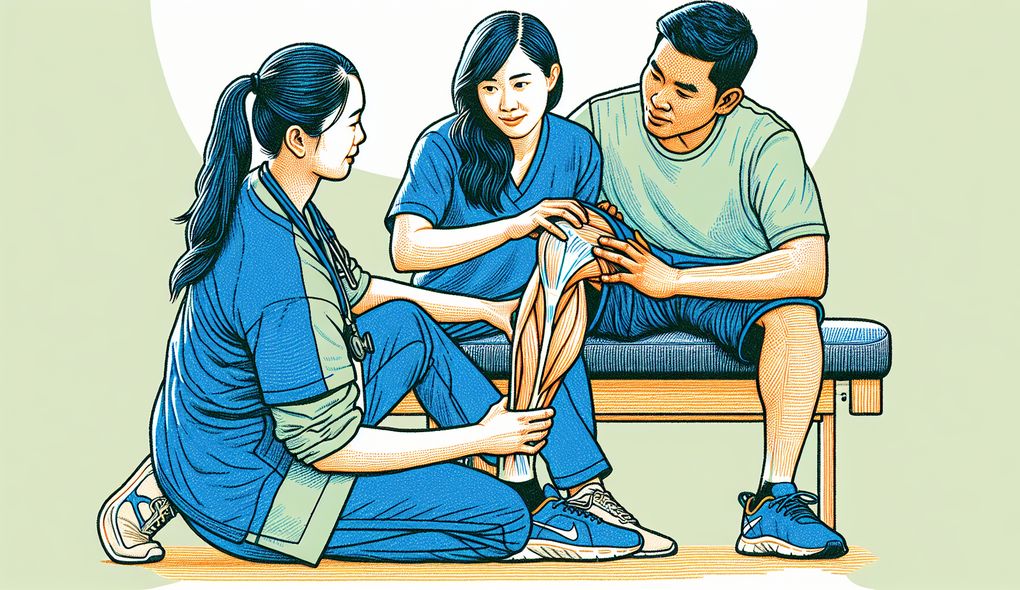How do you develop tailored care plans for patients?
JUNIOR LEVEL

Sample answer to the question:
When developing tailored care plans for patients, I start by evaluating their health and physical condition. I take into consideration their specific needs and doctor's recommendations. Then, I create a plan that includes exercises and routines that will help them improve their mobility and recover from injuries. I also monitor and record their progress to ensure they are making positive strides. Additionally, I educate patients and their families about health and wellness, and collaborate with other healthcare professionals to optimize their care.
Here is a more solid answer:
Developing tailored care plans for patients requires effective communication and interpersonal skills. I start by conducting a thorough evaluation of their health and physical condition, using a combination of assessments, patient interviews, and collaboration with doctors. Based on this evaluation, I develop personalized care plans that address their specific needs and goals. This involves creating detailed exercise and treatment routines, considering factors like their current abilities, medical history, and any potential contraindications. Throughout the process, I pay keen attention to detail, ensuring that the care plans are meticulously crafted and tailored to each patient's unique circumstances. Additionally, I prioritize empathy and patience while working with patients, making sure to understand their concerns and provide emotional support during their recovery journey. To stay organized and manage my time effectively, I utilize digital tools and scheduling systems to track patients' progress, appointments, and follow-ups.
Why is this a more solid answer?
The solid answer provides more specific details and examples to demonstrate the candidate's skills in the evaluation areas. It highlights the use of assessments, patient interviews, and collaboration with doctors in the evaluation process. It also emphasizes the importance of considering factors like current abilities, medical history, and contraindications when creating care plans. Furthermore, it mentions the candidate's focus on empathy and patience while working with patients, as well as their ability to stay organized and manage time effectively. However, the answer could still benefit from further elaboration on collaboration with other healthcare professionals and addressing healthcare regulations and safety standards.
An example of a exceptional answer:
Developing tailored care plans for patients is a multifaceted process that requires a combination of effective communication, proficiency in individual patient care plans, keen attention to detail, empathy, and excellent time-management and organizational skills. To ensure personalized care, I begin by establishing a strong rapport with the patient, actively listening to their concerns, and involving them in the decision-making process. I conduct comprehensive evaluations, utilizing a range of specialized assessments, and consult with the patient's healthcare team to gain a holistic understanding of their condition. Based on this assessment, I create detailed care plans that encompass exercise routines, treatment modalities, and specific goals tailored to the patient's needs and preferences. During implementation, I continuously monitor their progress and adjust the care plan accordingly, documenting any changes in their condition or treatment approach in a meticulous manner. I also prioritize educational interventions, providing the patient and their family with clear instructions on self-management techniques, preventive strategies, and community resources. Collaboration with other healthcare professionals is paramount in optimizing patient care, and I actively engage in interdisciplinary meetings and consultations to ensure a comprehensive approach. Lastly, I adhere to healthcare regulations and safety standards, maintaining strict confidentiality, and utilizing secure electronic systems for documentation and communication.
Why is this an exceptional answer?
The exceptional answer demonstrates a comprehensive understanding of the evaluation areas and aligns with the job description. It highlights the candidate's proficiency in effective communication, attention to detail, and empathy. It also emphasizes the importance of involving the patient in the decision-making process, conducting comprehensive evaluations, and continuous monitoring of progress. Furthermore, it addresses the need for educational interventions and collaboration with other healthcare professionals. The answer specifically mentions adherence to healthcare regulations and safety standards. It could be further improved with specific examples of interdisciplinary collaboration and techniques used to ensure patient confidentiality.
How to prepare for this question:
- Familiarize yourself with a variety of assessments and evaluation methods used in physical therapy
- Study different treatment modalities and their applicability to various conditions
- Develop your active listening skills to effectively understand patients' concerns and preferences
- Practice creating personalized care plans based on hypothetical patient scenarios
- Research community resources and preventive strategies to enrich patient education
- Prepare examples of situations where you collaborated with other healthcare professionals to optimize patient care
- Review HIPAA regulations and best practices for maintaining patient confidentiality
What are interviewers evaluating with this question?
- Effective communication and interpersonal skills
- Proficiency in creating and implementing individual patient care plans
- Keen attention to detail
- Empathy and patience while working with patients
- Excellent time-management and organizational skills

